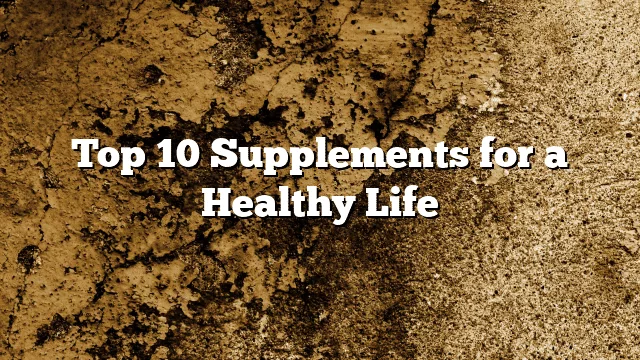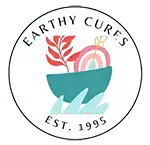
Top 10 Supplements for a Healthy Life
Research demonstrates that not all dietary supplements available on the market are effective.
Supplements should never replace eating healthy food, and before beginning any type of supplemental regimen it’s essential that you consult with a healthcare provider first.
1. Omega-3 Fatty Acids
Omega-3 fatty acids can play an integral role in keeping your heart healthy. In particular, they reduce triglycerides – fats in your blood that increase risk for cardiovascular disease – helping protect it against possible damage.
Diet is the ideal place to acquire omega-3 fatty acids, with salmon and tuna being top sources. Other rich sources include flaxseed, walnuts and canola oil.
Omega-3 fatty acids can also be obtained through plant foods such as edamame (soybeans), kidney beans, and broccoli – all excellent sources of protein and other essential nutrients that support health and wellbeing.
Omega-3 fatty acids may improve bone health and lower the risk of osteoporosis in both men and women, as well as helping increase levels of osteocalcin, which is essential to postmenopausal women’s bone health.
2. Vitamin C
Vitamin C, commonly referred to as ascorbic acid, is essential to your overall wellbeing and is an antioxidant that works together with other protection agents to ward off free radical damage in cells.
Vitamin C has numerous health benefits beyond just helping with immune function; it may also lower high blood pressure and enhance wound healing. You can find this nutrient in foods like strawberries, red and green peppers, papaya, cantaloupe, citrus fruits and tomatoes.
Orally taking supplements containing antioxidants is one way to do this, often as multivitamins. Research shows that taking these daily can increase blood antioxidant levels and therefore benefit many areas of your body.
3. Vitamin B-12
Vitamin B-12 is an essential nutrient, providing protection from heart disease and stroke while also supporting bone health, red blood cell formation and energy production.
Protein can be found naturally in animal products like meat, fish and poultry; and also fortified into foods like breakfast cereal and nutritional yeast.
Adults need about 2.4 micrograms (mcg) per day of vitamin B-12 (also called cyanocobalamin), while pregnant and breastfeeding women require an increase from 2.6-2.8mcg daily.
Diet is the primary source of vitamin B-12; however, for people who are vegetarians or vegans or those with conditions that inhibit absorption from food sources such as vitamin B-12 deficiency, oral supplements may provide additional benefit.
4. Coenzyme Q10
Coenzyme Q10 (CoQ10) is an antioxidant which protects cells against damage associated with aging and helps preserve cardiovascular and brain function. Additionally, CoQ10 plays an integral part in cardiovascular and neurological wellbeing.
As found in mitochondria, this nutrient plays an essential role in energy production and electron transportation. As such, it could potentially help prevent common health conditions like heart disease, high blood pressure, fibromyalgia and migraines.
Evidence also points towards exercise as being beneficial in lowering the risk of preeclampsia, a pregnancy condition which leads to high blood pressure during gestation and swelling of hands and feet. There’s even some speculation that regular physical activity might improve memory as well as help lower blood sugar levels for those living with diabetes.
5. Vitamin E
Vitamin E is a fat-soluble vitamin that can help protect against heart disease and increase cholesterol levels in blood. Furthermore, Vitamin E protects skin against sun damage while supporting immune health and reducing inflammation.
Diet is the key to getting enough vitamin E, and many nutritionists advise including nuts, seeds and vegetable oils in any healthy eating plan as these sources rank among the highest-rated providers of this vital nutrient.
However, if your diet is lacking the necessary vitamin E intake for you to meet daily recommendations, supplementation may be a viable solution. While most of us won’t experience deficiency due to diet alone, such an absence can still cause muscle weakness and vision impairment – taking vitamin E supplements is an easy and safe way to ensure you’re meeting daily requirements.
6. Vitamin K
Vitamin K is best known for its role in blood clotting; however, this fat-soluble vitamin also plays an integral part in bone health and cardiovascular disease prevention. Stored within fat tissue until needed by the body for absorption, vitamin K will eventually return back into circulation when needed by our bodies.
Studies conducted over time have indicated that those with higher intakes of vitamin K2 (menaquinone) may be less prone to arterial calcification and thus lower their risk for heart disease.
Note that taking supplements while on blood-thinner medication could interfere with its absorption. A balanced, nutritious diet should also be prioritized.
7. Vitamin A
Vitamin A is an essential fatty-soluble nutrient for building and repairing healthy tissues throughout your body, including your skin. Furthermore, it supports immune system function as well as maintaining strong eyesight.
Bone growth and development can also benefit from this supplement, helping to keep weight at a healthier level. Furthermore, this antioxidant prevents cell damage caused by free radicals.
Vitamin A deficiency isn’t common, but some individuals may be at risk due to malabsorption or other medical conditions that make it hard for the body to absorb and activate this essential nutrient. If this describes you, speak with your healthcare practitioner about taking steps to supplement this essential vitamin A nutrient.
Diet is one of the best ways to ensure you’re getting enough vitamin A. Foods high in this essential nutrient include cod liver oil, green peas, carrots, broccoli and red peppers.
8. Vitamin D
Vitamin D is an essential nutrient that assists your body in absorbing calcium, strengthening bones. Furthermore, vitamin D boosts immunity and can prevent certain diseases.
As UV rays from sunlight hit your skin, Vitamin D production takes place naturally. You can get enough by eating sources like fatty fish and mushrooms or supplementation.
Vitamin D deficiencies are fairly prevalent, particularly among those with darker skin tones or those living at higher latitudes where sunlight exposure during winter months is limited. Furthermore, individuals diagnosed with cystic fibrosis or Crohn’s disease are at increased risk for vitamin D deficiencies because their intestines aren’t working efficiently according to Dr. Nasrallah.
Vitamin D may reduce your risk of cancer, heart disease and diabetes; and may reduce MS – an immune-system disorder in which its cells attack the central nervous system – too.
9. Vitamin B-6
Vitamin B-6 (also referred to as pyridoxine) is essential to human metabolism and plays a key role in multiple processes in our bodies. It’s found in foods such as meat, poultry and fish – as well as fortified cereals containing this nutrient.
Protein provides your body with energy to convert protein to energy and form hemoglobin, a protein responsible for transporting oxygen throughout your blood. Furthermore, it plays an integral part in controlling homocysteine levels that have been associated with heart disease.
Vitamin B-6 may also aid in treating premenstrual syndrome (PMS), an emotional condition which affects women before menstruation and may cause depression and irritability. According to one study, women taking 50 mg of vitamin B6 daily for three months experienced reduced PMS symptoms such as anxiety and tiredness.
10. Vitamin E
Vitamin E is a fat-soluble vitamin that works to protect the body against oxidative stress by neutralizing free radicals that form. Furthermore, it plays an integral part in immune function and cell signaling processes.
Deficits in vitamin E can result in serious health complications, including nerve and muscle damage. You should ensure you consume sufficient quantities through diet or supplements; otherwise you risk anemia and other health problems.
Vitamin E can be essential in supporting brain and eye health, though research on its benefits remains inconclusive. Furthermore, it helps lower blood pressure.
